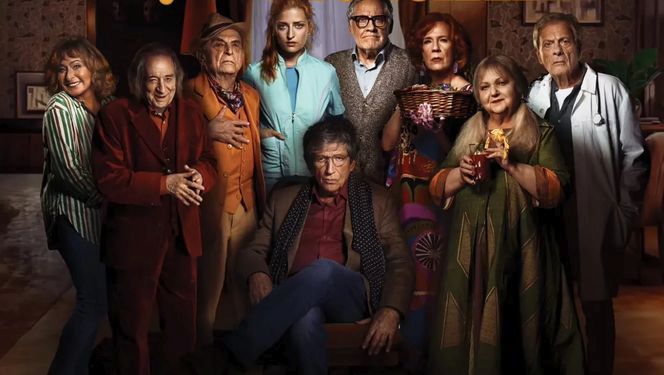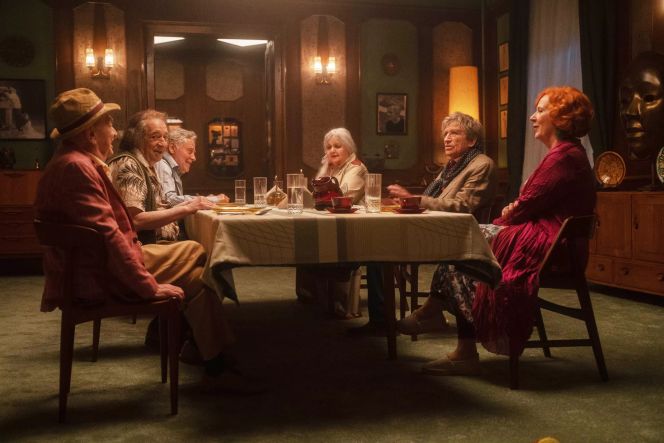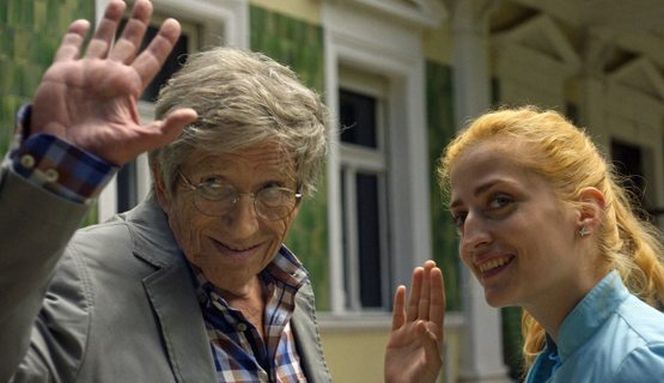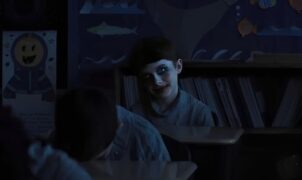MOVIE REVIEW – Tonight We Kill started off as a promising crime comedy but ultimately became yet another example of how to ruin a great premise when humor, suspense, and nostalgia fail to find the right balance. The story follows the murder of a resident at an actors’ retirement home, and it’s up to András Kern’s character to solve the mystery. Despite a cast of esteemed actors, the film is packed with hollow jokes and a disjointed plot, rarely giving the impression of a genuine whodunit. Rather than delivering classic crime-comedy elements, it leaves behind a lackluster, nostalgia-filled comedy that falls flat.
A murder shocks the residents of the actors’ home, and while András Kern is meant to be the detective uncovering the culprit, the film ends up raising more questions than it answers. Only one question sticks to the storyline: who’s the killer? All other questions echo the lost spirit of Hungarian humor: why are the jokes so flat, and where did the once-great talent of Hungarian actors go? Legendary performers – Kern, Róbert Koltai, Judit Pogány, and others – try to recapture past glories, but the result is more frustrating than entertaining.
Shadows of Past Glory
Hungary was once home to great comedies. Just think of The Pagan Madonna or Cat City – these films brought laughter without sacrificing the dignity of their characters or situations. Tonight We Kill was made in the shadow of that legacy, aiming to give iconic actors a final chance to shine. Originally directed by Sándor Csányi, who envisioned it as a stage for the actors’ best performances, the project shifted to Péter Fazakas. Unfortunately, the result is more like a faded ghost of crime comedies.
The film opens with Tivadar Tolnai (András Kern), once “the detective of Hungarian Television” in a period-piece TV role, now an aging private investigator, trying to solve a murder. Kern plays a relentless, arrogant actor, reprising his old role with a dose of self-mockery. His investigation aims to showcase his fellow veteran actors, each one caricaturing their real-life personas. But what begins with promise quickly loses steam, with the story ultimately suffocating in its own setup.
Not Exactly Knives Out – Hungarian Style
Anyone expecting a Hungarian Knives Out based on the promotional materials will likely leave disappointed. Although Fazakas’s direction includes all the classic crime tropes – a victim, multiple suspects, and an eccentric detective – these elements feel so clichéd that the film comes off as a shallow, formulaic production. Instead of capturing the thrill and intrigue of classic whodunits, the film leans into local comedy clichés, with cheap gags and slapstick moments. Rather than functioning as a true crime story, it relies on the actors’ personalities and chemistry, but the fragmented plot quickly unravels.
The inspiration is clear: screenwriter Norbert Köbli drew from Knives Out and Richard Osman’s The Thursday Murder Club. However, Köbli eventually distanced himself from the film, and although the setup is there – a closed-set murder in an actors’ home and a detective inspired by his past – the final product is so scattered that even the best scenes barely draw a half-hearted smile.
Big Names, Little Impact
With names like Gyula Bodrogi, Róbert Koltai, and Judit Pogány, this film could have been remarkable. But instead of letting these actors shine in a real crime story, they’re used for empty nostalgia. Pogány’s restrained presence and Bodrogi’s boisterous personality are well-known, making it painful to see them reduced to parodies of themselves. Kern’s Tolnai, who mocks everyone from a young nurse to fellow actors, embodies arrogance, while Koltai’s neurotic screenwriter and András Bálint’s doctor-turned-actor fall into shallow stereotypes.
Fazakas’s direction isn’t a disaster, but his visual use of theatrical settings is disappointingly monotonous, dragging each scene down to repetitive boredom. While viewers might be curious about the story, as one illogical and predictable scene follows another, any interest quickly fades, and the thrill of the mystery is replaced by a sense of resigned disappointment: we realize it’s just another tired Hungarian film.
Only the Crime Comedy Genre Gets Murdered Here
At first, Tonight We Kill seemed like another attempt at Hungarian crime comedy, but it ended up as a shallow, cliché-ridden comedy, relying on famous actors’ personas more than a genuine plot. Not even András Kern or the big names can save the film from leaving audiences puzzled by the weightless jokes rather than the twists and turns. The creators seem to have forgotten along the way how crucial the balance between humor and suspense is – and that nostalgia can’t replace a well-written script. The film’s biggest crime? Wasting a cast full of talented actors and leaving us with a hollow, uninspired comedy that barely holds together.
-Gergely Herpai, “BadSector”-
Tonight We Kill
Direction - 2.4
Actors - 4.5
Story - 1.2
Visuals/Music/Sounds - 3.8
Ambience - 2.8
2.9
FAIL
Tonight We Kill fails where a crime comedy should shine: no suspense, no punchy jokes, just familiar actors playing up their old clichés. Although the big names could have saved the movie, it delivers bland punchlines and predictable twists that barely manage to coax a half-smile from viewers bored out of their minds. This crime comedy's greatest sin? It doesn’t take the mystery, the genre, or the audience seriously.



















Leave a Reply